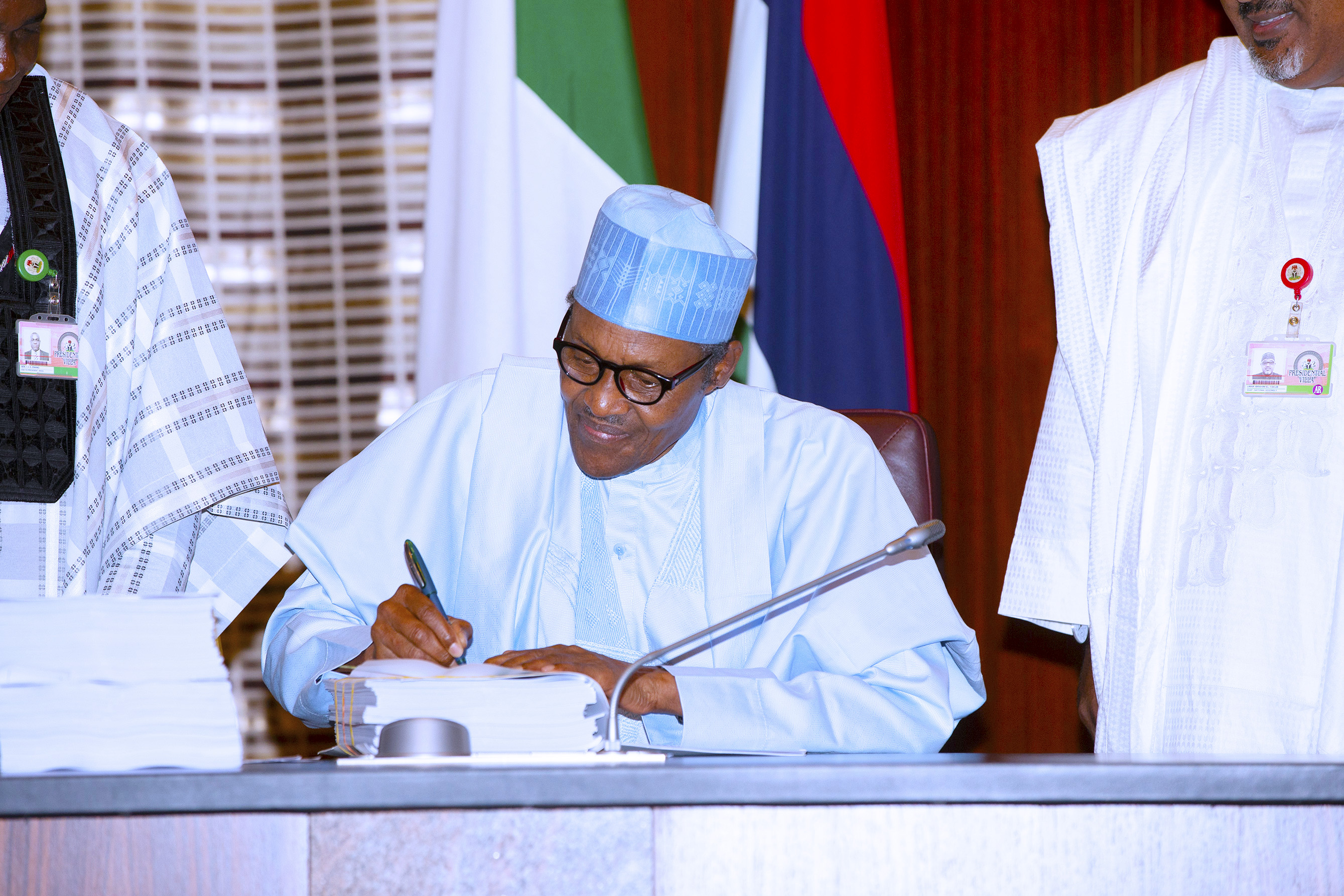On Friday, May 24, 2019, the Economic and Financial Crimes Commission (EFCC) raided the headquarters of newly listed telecommunications company, MTN Nigeria Communications Plc in Lagos. Prior to this, the EFCC had a day before, on the 23rd of May, sent a letter to the telecoms giant requesting information and documentation related to its listing of its shares by introduction on the premium board of the Nigerian Stock Exchange (NSE).
Within 24 hours, the EFCC sends a request letter to MTN, and, without waiting for the company to put together the necessary document and respond to its letter, does what it has come to be known for – embark on a media trial. This is in spite of the fact that nowhere in the letter of inquiry sent to MTN did the EFCC state that it was investigating the company for any wrongdoing.
The questions on the lips of industry watchers is, why didn’t the EFCC wait for MTN’s reply to its letter? Why issue the telco a letter today and then the next day invade the company’s head office? Also is the question of whether the EFCC can usurp the powers of the Securities and Exchange Commission (SEC) to launch an investigation into capital market infractions.
Commenting on the matter, the Chief Executive Officer (CEO) of the Financial Derivatives Company, Bismarck Rewane, during an interview session on the Channels TV Business Morning show said, “By sealing off MTN on Friday, the signal that was being sent is that as an investor if there’s any form of suspicion of wrongdoing, you can be sealed off and your business brought to a halt.”
Advertisement
Continuing, Mr. Rewane queried, “Does the EFCC have the right to go into a company, yes it does, if there’s a perception of wrongdoing; but not to the extent that you will actually make it so overt that everybody thinks that there is a violation of the law… Don’t forget, the Investment and Securities Act allows the SEC and tribunal to first investigate; that has to finish before you now determine whether there was a financial crime and then call the EFCC.”
In January 19, 2017, the SEC and EFCC signed a Memorandum of Understanding (MoU) at the anti-graft head office in Abuja. The MoU was to enable both organisations cooperate in clamping down on fraudulent operators in the Nigerian capital market. According to a statement posted on the EFCC website, “The collaboration will see the EFCC provide law enforcement muscle to give bite to SEC’s regulatory mandate in the capital market.”
Judging by the above, the EFCC knows where its power lies, and so it raises an eyebrow that the anti-graft agency would in total disregard to due process, without giving MTN the chance to respond to its letter, raid the telcos head office, thereby triggering a fall in the company’s newly listed shares.
Advertisement
A point to note is that the SEC that is statutorily empowered to handle any capital market infractions, especially at this level, has come out to state that the commission approved MTN’s listing and had no issues with it after the telco met every regulatory requirement in its listing, according to The Punch.
In an elaborate statement, the NSE itself defended MTN, stating amongst other issues that the allegation of concession given the telco on the minimum free float requirement was a misconception, and that MTN had met the minimum free float required for companies listed on The Exchange.
“The Exchange’s rules for listing on the Premium Board (which is the board in which MTN Nigeria is listed) require a Company to have a minimum free float of twenty percent of its issued share capital or that the value of its free float is equal to or above N40 billion on the date The Exchange receives the Issuer’s application to list. MTN Nigeria met with the free float requirement of N40 billion. The free float of MTN at the time of listing was in excess of N90 billion.”
Following the denials by the NSE and SEC of any wrongdoing by MTN, this brings us to the question of why the EFCC which signed an MoU of cooperation with the SEC would now turn around to work against the SEC. More than its core responsibility to investigate, prosecute and enforce all laws against economic and financial crimes, the EFCC has become a willing tool for manipulation in the hands of influential state and non-state actors. There are insinuations in some quarters that the EFCC is being puppeteered on this MTN matter.
Advertisement
Under its acting chairman, Ibrahim Magu, the EFCC have shown a flagrant disregard for the rule of law, a love for the paparazzi and the assumption it creates of working each time it goes on one of its many media trials. Several Nigerians have accused the EFCC of playing to the gallery in its prosecution of corrupt politicians and government officials, and believe that extending this abuse of power to the private sector is bad for business. Indeed it is!
As a result of the EFCC’s misguided action, MTN Nigeria share price fell for the first time since it was listed on the stock exchange. In a week after it was listed for N90 per share, the share appreciated by 65 percent to stand at N149 a day before the EFCC’s invasion. The following day that the development became public, the price dropped to close at N140 per share.
This is not just bad for MTN Nigeria, the EFCC’s disregard for the rule of law will affect the entire equities market. On the eve of MTN’s listing on May 16, the stock market was already on the decline, but, due to investors interest in MTN shares which saw it garner a daily 10 percent profit for five consecutive days, the market decline was reversed for the first time since the start of January 2019.
We can see that Nigeria and MTN are conjoined twins in this race to economic growth, and so any government that is serious about developing its economy would see that the second of its biggest publicly listed companies valued at a market capitalisation of N2.8 trillion is not treated in such a manner that is capable of making other investors to reevaluate their investments.
Advertisement
Also, in a situation where Nigeria’s economy is still recovering from recession, and investors remain sceptical about bringing Direct Foreign Investments (FDI) into the country, the EFCC’s action can be likened to economic sabotage. It does not help the anti-graft agency’s case that the governor of the Central Bank of Nigeria (CBN), Godwin Emefiele, recently warned of a coming global economic crisis and a possible slide back into recession.
At the time of writing this piece, the EFCC was yet to inform Nigerians its reason for the raid. Potential investors are watching and taking notes. If not curtailed immediately, the EFCC’s action can erode investors confidence, which would invariably have an adverse effect on the Nigerian economy. Now, because the private sector thrives on the rule of law and international best practices, the EFCC is advised to take its misguided media trial elsewhere.
Advertisement
Maduekwe can be reached via Twitter @Ojo_Maduekwe
Advertisement
Views expressed by contributors are strictly personal and not of TheCable.
Add a comment







